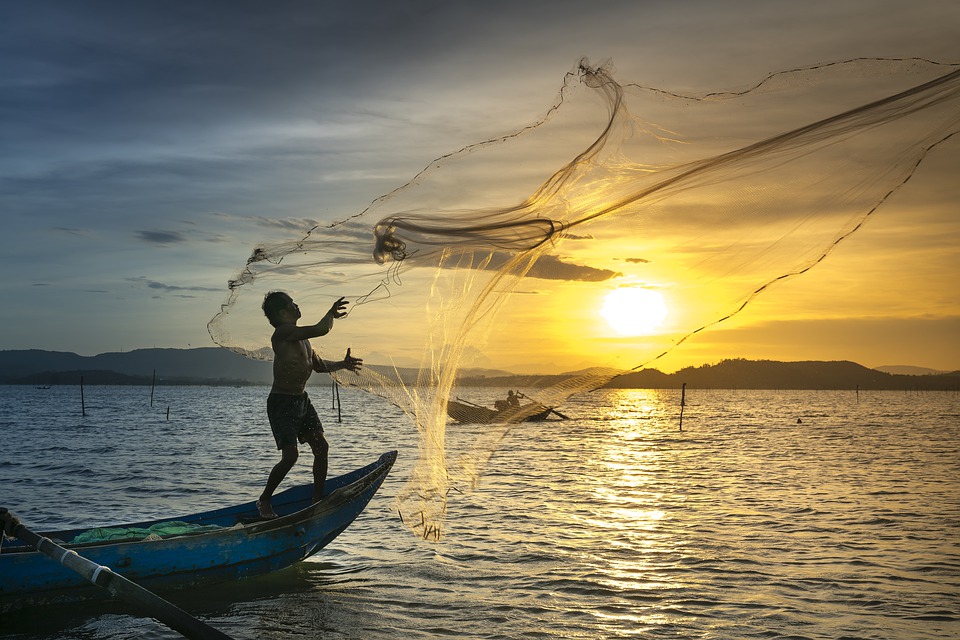Recreational fishery is an ancient sport and has been associated with human civilizations around the planet from time immemorial. It has always been a pure joy of being intimately associated with nature; and to breathe in fresh air while enjoying the sun on the back as a most inspiring outdoor recreation for millions of both professional and amateur anglers around the planet. Both freshwater and marine recreational fishery represents massive global industries with several million dollars in annual turn around while providing employment to millions of people around the planet.
However, recreational fishing industries in developing countries like India is not as well established, monitored and regularized as is observed in developed nations across North America, EU, Russia, Australia, New Zealand, China, Japan, South Korea, Latin America and the Caribbean as well as several island nations around the planet. Uncontrolled and unmonitored recreational fishery is the norm in most developing and under developed nations across Asia, Africa and Latin America. However, if managed properly recreational fishing has the opportunity to develop and prosper into million dollar industry. The money generated from recreational fishing could be party used in revamping the local economy; while a portion could be categorically set aside for promoting environmental education and awareness as well in funding various conservation initiatives.
The Make in India initiative could transform India into a global manufacturing hub for various modern fishing tools and gears, gadgets and other accessories associated with recreational fishing. This could include manufacturing fishing boats, trawlers, canoes, water ski related tools and machine, various related motor parts, modern fishing rods and fishing gadgets, recreational fishing related specialized dress and uniforms, bags, backpacks, boots, shoes and sneakers, hinting knives, binoculars, thermal sensors, compass, different cameras used for both above and under water high quality photography and video making, tents, barbeque stands, outdoor cooking gears and utensils for anglers to mention only a handful. If India can manufacture such recreational fishing industry related tools and gadgets with reasonable quality and durability and with competitive pricing, she has the opportunity to become a major global player earning both foreign exchanges while providing employment for many. The fishing license issued by the government against specific fees and proper digital recording of all participants will not only bring in revenues for the government; but will also provide a database of recreational fishery related tourists, professional and amateur anglers for the purpose of monitoring. Such tourists particularly those from overseas may also be made to buy compulsory health and liability insurances adding to the revenue collection process.
Recreational fishing is an important and emergent industry across India rich in different freshwater bodies like ponds, pools, lakes, swamps, bogs, ditches, rivulets, streams to enjoy fishing. At the present moment India does not have very well organized estuarine or marine recreational fishing centers other than a handful in east and west coast, but it can certainly expand in the not so distant future. It also has a huge tourism potential since local, regional, national and foreign tourists enthusiastic about angling will not only come and visit well known water bodies to catch their desired species of fishes; but will also serve as tourists helping in supporting and building the local economy. Many of these professional and amateur anglers would also visit local tourist attraction spots, eat in the restaurants, shop in local markets and stay in local hotels bringing in employment opportunities as well as an additional source of income for the local inhabitants. If a comprehensive fish conservation policy is legislated and enacted properly, exposing edible commercial fishes raised in designated artificial water bodies like ponds or lakes to angling and recreational fishing could certainly lead to valuable economic contribution. Ecology and economy can therefore go side by side if we take responsibility and contribute judiciously towards exploiting our natural resources with long term sustainability and minimizing the impact on our fragile and highly sensitive local aquatic ecosystems and natural environments.
However, in spite of the great opportunities as discussed above we must also remember that India being a megabiodiverse nation is known to have a wide diversity of indigenous and endemic fish specie. Many Indian fish species are threatened with extinction due to several anthropogenic factors like water pollution, over harvesting, eutrophication in freshwater bodies, and release of toxic agricultural chemicals in the water bodies, accidental introduction of fish diseases, fish parasites and exotic predatory fish species that are wiping out many indigenous species at an alarming rate. With India’s moderately poor track records in successful long term conservation as well as major failures and mismanagement of forests, wildlife and biodiversity; it is not quite advisable to try or attempt introduce recreational fishery practices even with government registration or licensing inside or adjacent to protected habitats, sanctuaries, forested areas, natural biospheres or reserve forest. Since it has the danger and/or possibility of several anthropogenic factors as mentioned above that may prove to be extremely detrimental towards indigenous fish conservation.
We need to be environmentally aware and sensitive and practise caution in not exposing our natural water bodies and wild fish species towards high level of exploitation and over harvest to boost tourism. If ecology and economy can successfully integrated and recreational fishery is strictly allowed in designated fishing ponds only against specific government or government regulated agencies issuing fishing licenses for interested tourists with appropriate monitoring, surveillance and management, it can serve as a major adventure sports type industry in the long run. India may become a global recreational fishing manufacturing hub as well as top local, regional and international recreational fishing and angling tourist destination.
